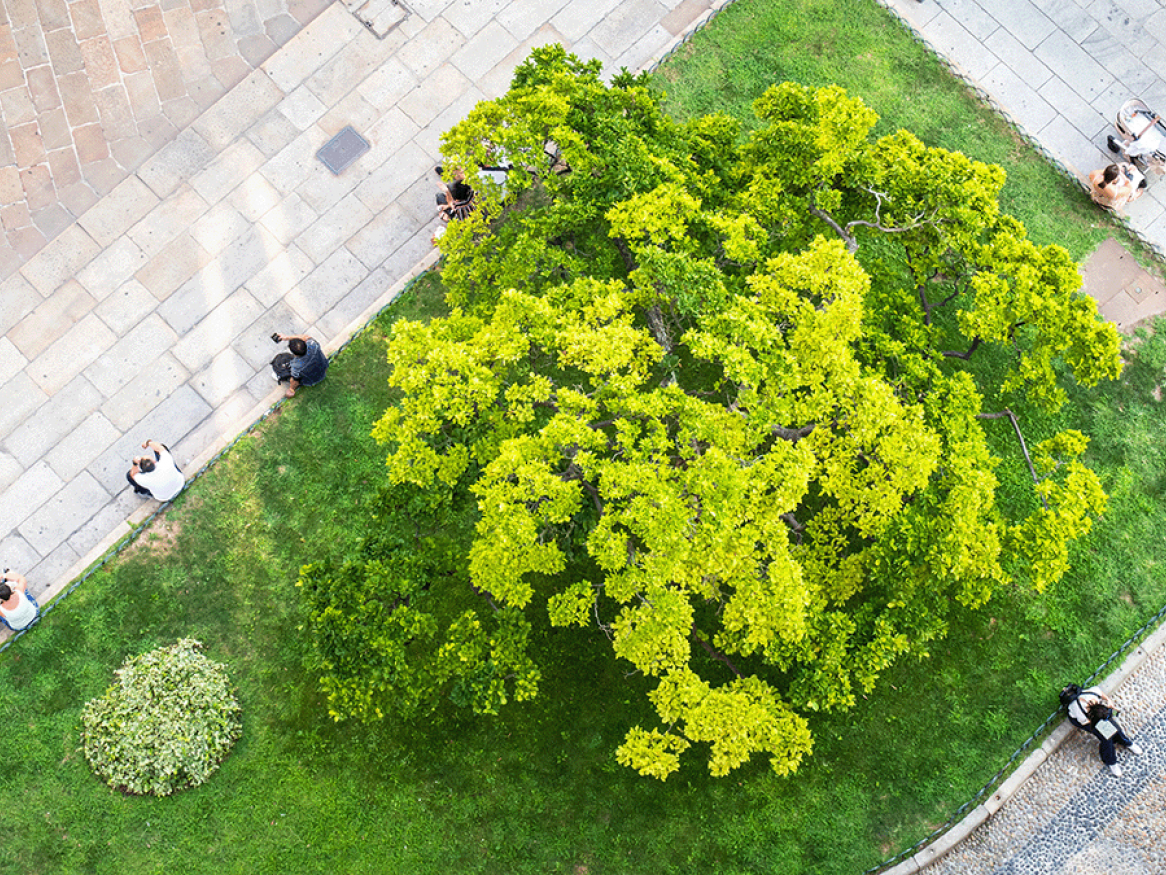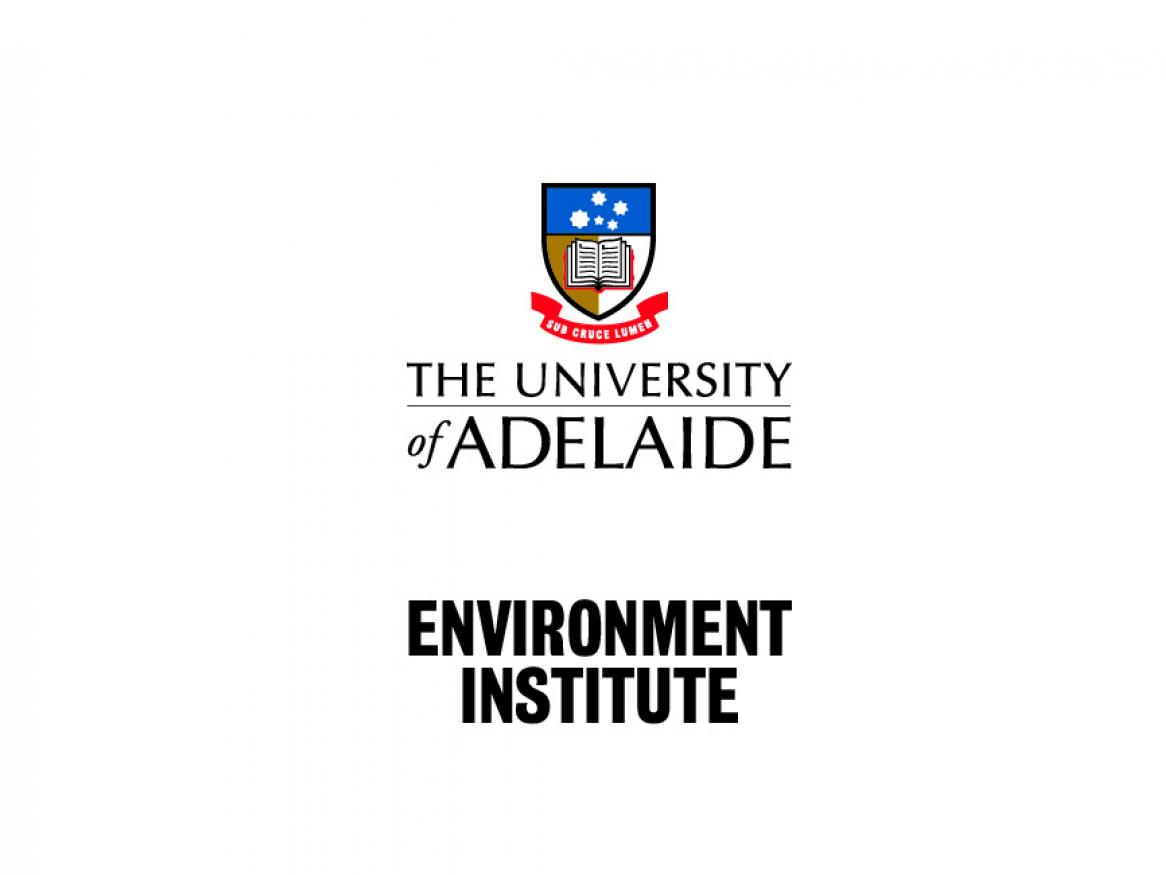Home
Our Vision is to safeguard the environment now for future generations.
We deliver the knowledge needed to halt and reverse environmental decline and ensure a future that is healthy, diverse and equitable.
We work to understand the functioning of and pressures facing biodiversity, water and ecosystem services, and to deliver solutions with partners to halt and reverse environmental decline in terrestrial, coastal and marine ecosystems across natural, production and urban landscapes.
Environment Institute Harmful Algal Bloom (HAB) capability statement
Updated 8th September, 2025.
The Environment Institute has nationally important research expertise in marine, coast and freshwater ecosystem science, which is critical to understanding, monitoring, developing solutions, restoring and building future resilience to the unfolding algal bloom crisis impacting southern Australian coastal waters.
Support the Environment Institute’s research into the HAB
In a changing environmental landscape marked by environmental disasters and dividing debates, the Environment Institute’s systemic approach to complex environmental challenges brings together multidisciplinary teams across science, economics, law, psychology, health, philosophy, social science and engineering.
With researchers across all faculties of the University of Adelaide, the Environment Institute's multidisciplinary approach focuses on safe-guarding the planet, land, water and air resources delivering outcomes with industry government and community.
Hope and Wonder
The Hope and Wonder series is an informative collection of resources that includes public lectures, podcasts and events designed to inspire wonder in the natural world, while also providing hope that we can safeguard the environment.
Our research
The Environment Institute represents a diverse range of centres and programs, dedicated to making environmental change.
Our team
We have an enthusiastic team of researchers, dedicated to great research and results.
About us
Find out more about the Environment Institute, including our newsletters, annual reports and the latest research wins.
International Symposium on Green Urban Futures & Future Tree Workshop
Showcasing prominent international, national and local speakers to address challenges and discuss novel ways for cities around the world to achieve green urban futures. Held at the National Wine Centre, The University of Adelaide, 3 – 5 December 2025.
Member resources
Members of the Environment Institute are invited to use the resources available including images and templates.
Latest news
Tracing the rapid spread of the fox across Australia
New research reveals that red foxes colonised Australia in just 60 years. Environment Institute Deputy Director Associate Professor Damien Fordham says the findings help explain past biodiversity losses and provide vital data to prevent future extinctions, offering a new framework for tracking other invasive species such as cats. Read the full study published in Diversity and Distributions, and article for The Conversation here.
Read more about Tracing the rapid spread of the fox across AustraliaEnvironment Institute Members Share Insights on the Harmful Algal Bloom at the Federal Senate Inquiry
Dr Dominic McAfee, Future Making Fellow and Professor Andrew Lowe, Director, Environment Institute were invited to appear at the Federal Senate Inquiry for the harmful algal bloom (HAB), alongside EI members Professors Luke Mosley and Ivan Nagelkerkern. Professor Lowe spoke of the need to restore both marine and terrestrial ecosystems to help stop sediment and nutrient run off from the land - by restoring waterways and riverine systems - and soak up nutrients and sediments that enter coastal waters – by restoring shellfish reefs and seagrass ecosystems. Dr McAfee has been working closely with communities, traditional landowners, and school students on community-based restoration projects. One of these projects is creating oyster baskets to help shellfish ecosystem restoration in the Port River in partnership with the OzFish Adelaide Chapter.
Read more about Environment Institute Members Share Insights on the Harmful Algal Bloom at the Federal Senate InquiryDr Phillipa McCormack on Reforming Australia’s Outdated Environment Laws
Environment Institute Future Making Fellow Dr Phillipa McCormack co-authored a recent article for The Conversation, outlining key recommendations for how Australia’s environment laws should be reformed. The Albanese Government has indicated it is close to striking a deal with the Coalition on new environmental laws, which must deliver substantial improvements. In the article, they provided various recommendations for the reform, covering topics like an independent watchdog, habitat protection, climate change, First Nations voices, logging, and the need for defined targets.
Read more about Dr Phillipa McCormack on Reforming Australia’s Outdated Environment LawsPFAS Breakthrough: Say Goodbye to the "Forever Chemical"
Research led by Dr Cameron Shearer is pioneering new ways to break down PFAS, the persistent “forever chemicals” polluting soil and water. Dr Shearer and his team have found that light-activated catalyst technology can degrade PFAS into harmless compounds, offering a sustainable approach for environmental remediation and safer communities. The work is also featured in the new PFAS and Microplastic Capability Statement, highlighting pollution detection, degradation technologies, and sustainable chemical solutions.
Read more about Say Goodbye to the "Forever Chemical"08 Oct
Bandi Bushcare Awarded Nature Foundation Habitat Restoration and Protection Award
The Bandi Bushcare project, led by the Friends of Brownhill Creek members Dr Jamin Packer, Environment Institute member, and Dr Rosslyn (Rossi) von der Boch were awarded Gold award for the Nature Foundation Habitat Restoration and Protection Award. Their project titled “Bandi Bushcare: Habitat Restoration and Protection in Wirraparinga-Brownhill Creek” promotes a community of volunteers that protect and create habitat for the endangered southern brown bandicoot (marti) in the Brownhill Creek Recreation Park. 23 Sep
15 Million-Year-Old Fossil Shells Reveal Traces of Colour Patterns in South Australia
University of Adelaide PhD candidate Mahala Fergusen, together with Environment Institute members Dr Liz Reed and Assoc. Prof. Diego García-Bellido, examined fossil shells from the Murbko Marl. They discovered 18 different species responded to UV light, displaying stripes, bands, and chevrons that had been hidden for millions of years. Through the use of UV light, this study has provided a better understanding of molluscs but also a vivid reminder of South Australia’s oceanic past. 16 Sep
New Research on Governance Challenges for Ecosystem-Based Adaptation in Bangladesh
Environment Institute member Professor Melissa Nursey-Bray has co-authored a new article examining the governance challenges of implementing ecosystem-based adaptation (EbA) in Bangladesh. The paper, written with Syed Mohammad Aminur Rahman and Md. Masud-All-Kamal, explores how wetlands, which are vital for biodiversity and community resilience, are increasingly under threat from climate change and ecological degradation. 12 Sep
Global Collaboration in Action: United Nations Association x Environment Institute
The Environment Institute was honoured to host Jay Jethwa, Vice President of the World Federation of United Nations Associations, whose visit strengthened connections between the UN system and universities, particularly around the Sustainable Development Goals. Jay also delivered a keynote address at the special event ‘Biodiversity Matters’, co-hosted with UNASA and DFAT. The event was MC’d by Martin Haese, opened by Dr Susan Close MP and convened by Institute Director Professor Andrew Lowe, the panel featured Jay Jethwa, Jill Collins (DFAT), Tim Jarvis AM, and Craig Wilkins, with closing remarks from The Hon. Robert Hill AC. The event was held in honour of Lidia Moretti, President of the South Australian chapter of the United Nations Associations. 12 Sep
How Hard is the Algal Bloom Hitting South Australia? Impacts on Marine Life & Humans
Our Environment Institute members have been active in the Harmful Algal Bloom (HAB) space. Discover the devastating effects of HABs on marine life, human health, and ecosystems. Learn which species are safe, the scale of destruction, and the solutions scientists are testing for recovery. 10 Sep
What does the future hold for our planet?
In the latest issue of Lumen, Director Professor Andrew Lowe responds to alumni readers’ questions about the future, from climate change and biodiversity loss to water security and government inaction. At the Environment Institute, our researchers are working to create real solutions to these challenges — combining world-leading science, citizen engagement, and education to drive lasting impact.

Newsletter & social media
Join us for a sensational mix of news, events and research at the Environment Institute. Find out about new initiatives and share with your friends what's happening.











